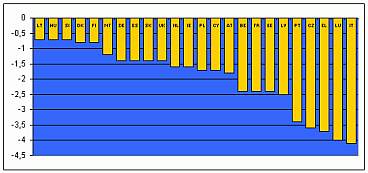What about the European Single Market?
What about the European Single Market?
As members of the SP we don't exactly get a warm feeling when we hear the word 'market', and definitely not when we hear 'European internal market'. This has always been a neoliberal project, under which social and environmental interests are subordinated to the principle of unbridled competition. The economic crisis was a direct consequence of this exaggerated confidence in 'the market'. Still, in the European Parliament the tide now appears to be turning. For the very first time the Parliament has produced a report in which the Commission is at last called upon to take measures to prioritise the general interest over that of 'the market'. One swallow doesn't make a summer, but this is a better message than we have heard from Brussels in a very long time.
It isn't at all surprising that the vote has turned around. Since the 1990s Brussels has announced measure after measure designed to make it easier for businesses to operate beyond their borders in other parts of Europe. Business interests are central in this, and above all those of the multinationals. That appeared at first to lead to more economic growth, but this early success would pale.
What was the problem? Because only the major corporations were pandered to, the market became their plaything. There was little in any of this for ordinary people: okay, it got easier to travel around Europe and to make payments across borders, but the interests of the consumer were never really central. Moreover, social rights and other interests such as those of the environment were subordinated to the principle of unbridled competition, so that government policies aimed at furthering more general interests were often given low priority by the jurisprudence of the European Court of Justice.
At the same time the member states have failed to transpose all of this European legislation into their national laws. That too can be explained in part by the market's lack of popularity amongst the populations of EU countries. The table below shows which countries have implemented the most legislation, with the countries to the left of the table having the best record, and those on the right lagging behind:
A market unpopular amongst ordinary people will in the end turn out not to work well. Most firms are not going to expand to other member states and the great majority of consumers buy for the most part locally. This has led to a situation in which even the most confirmed market fundamentalists are starting to take an interest in plans which could indeed make the European single market popular, offering to the SP and like-minded parties a chance which we are keen to seize with both hands: if you want a European market which functions better, you must first introduce legislation which protects public services and respects social rights; regulations which offer protection where necessary to the consumer and small and medium-sized firms, while refraining from overburdening such companies them with unnecessary and petty rules; amid laws which make it possible for public authorities to serve the general interest, even where that means that we need to restrain 'the market'.
All of this is contained in a series of amendments which we have presented and which will shortly be debated in the European Parliament's Internal Market Committee.
To be continued...
- See also:
- Dennis de Jong

